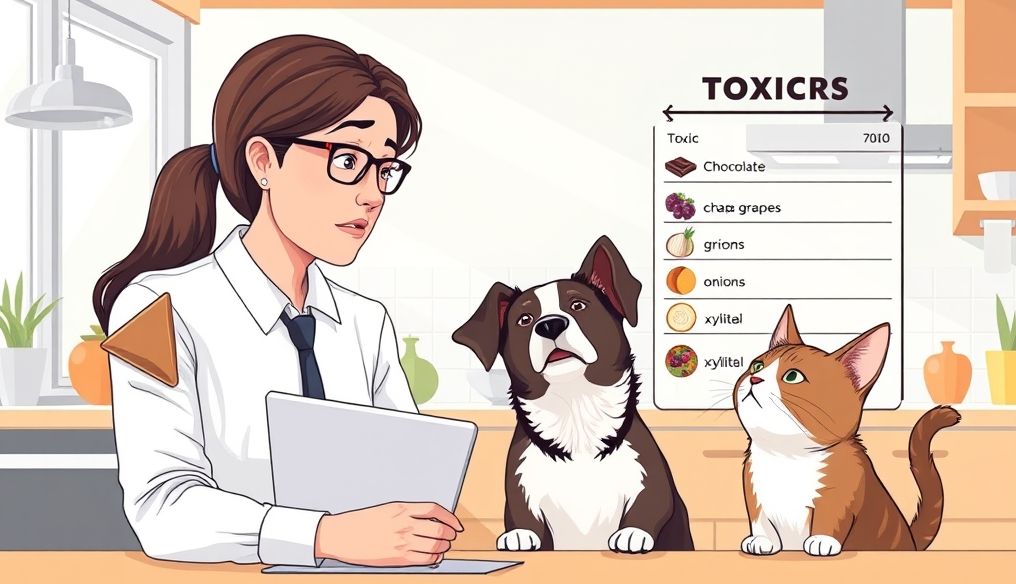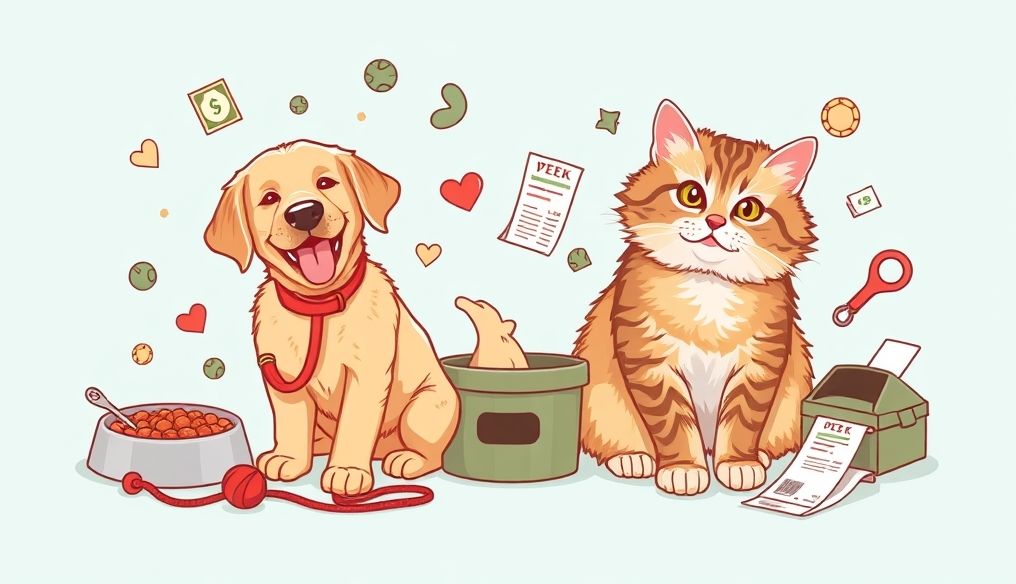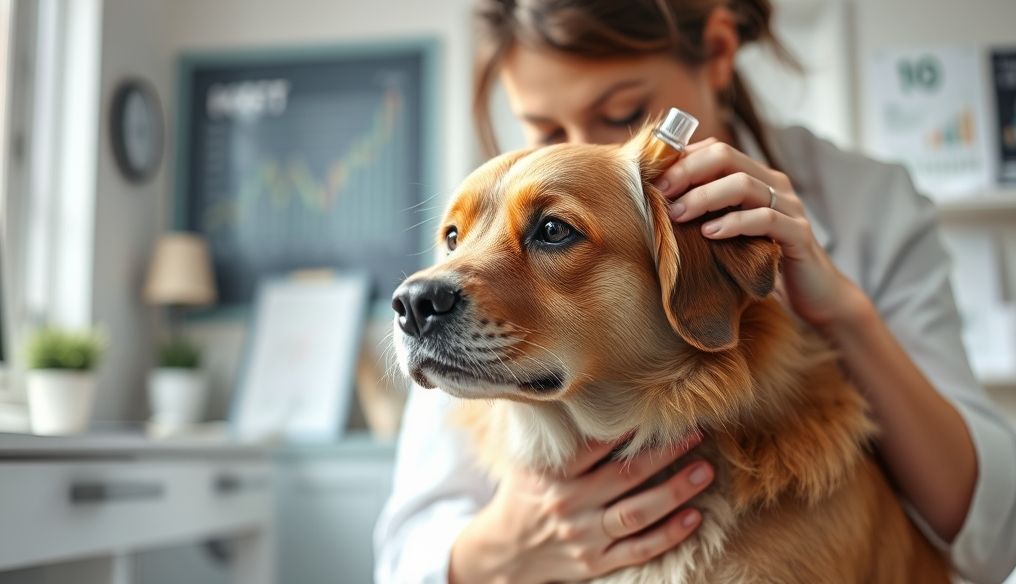What are the Real Costs of Owning a Cat or Dog and How Can You Manage Them Effectively?
Owning a pet, whether a cat or a dog, brings a lot of joy and happiness, but it also comes with significant financial responsibilities. Before deciding to add a new member to your family, it is essential to understand the real costs associated with pet care and plan your finances accordingly to ensure you provide a healthy and happy life for them.
Chapter 1: Initial Costs - More Than Just the Purchase Price
People often focus on the purchase price of a pet, but this is just a small part of the initial costs. In addition to the purchase price or adoption fees, there are other expenses to consider:
- Adoption Fees: Adoption fees can range from low-cost animal shelters to higher-cost rescue organizations. These fees often include initial vaccinations and spaying/neutering.
- Initial Vaccinations: Essential to protect your pet from common diseases.
- Spaying/Neutering: Prevents unwanted pregnancies and reduces the risk of certain diseases.
- Microchipping: Helps find your pet if it gets lost.
- Basic Supplies: Includes food, bowls, a bed, toys, a litter box (for cats), and a leash and collar (for dogs).
Example: Adopting a cat from a shelter might cost SAR 500, while purchasing a dog from a reputable breeder could cost SAR 5000 or more. Additionally, the cost of initial vaccinations and spaying/neutering can range between SAR 1000 and SAR 2000.
Chapter 2: Ongoing Costs - Food and Health are Key
Ongoing costs are the expenses that recur regularly throughout your pet's life. These costs include:
- Food: You should choose high-quality food that is appropriate for your pet's age, breed, and health condition.
- Healthcare: Includes routine check-ups, annual vaccinations, and preventative parasite treatment (worms, fleas, and ticks).
- Grooming Supplies: Includes shampoo, a brush, nail clippers, and dental hygiene products.
- Toys and Other Supplies: Pets need mental and physical stimulation, so you should provide toys and other supplies.
- Pet Health Insurance (Optional): Can help cover the costs of unexpected medical treatment.
Statistic: According to a recent study, dog owners in Saudi Arabia spend an average of SAR 500-1000 per month on their dogs' care, while cat owners spend an average of SAR 300-700 per month.
Chapter 3: Unexpected Healthcare - Be Prepared for Emergencies
Your pet may experience accidents or develop illnesses that require expensive medical treatment. It is important to be prepared for these emergencies by:
- Creating an Emergency Fund: Allocating a sum of money for medical emergencies.
- Purchasing Pet Health Insurance: Can help cover the costs of unexpected medical treatment, such as surgery or chemotherapy.
- Knowing the Nearest Emergency Veterinary Clinic: In case of an emergency outside of regular business hours.
Tip: Compare different pet health insurance plans and choose the one that suits your needs and budget.
Chapter 4: Training and Behavior - Investing in a Happy Future
Proper training is important to ensure your pet is happy and well-adjusted. Training can include:
- Obedience Classes: Help teach your pet basic commands and improve their behavior.
- Litter Box Training (for Cats): Essential to ensure your cat uses the litter box properly.
- Leash Training (for Dogs): Helps make walking more enjoyable and safe for you and your dog.
- Addressing Behavioral Issues: If your pet has behavioral problems, such as biting or excessive barking, you may need to consult a trainer or animal behaviorist.
Chapter 5: Travel and Accommodation - Plan Ahead for Fun Trips
If you plan to travel with your pet, you will need to consider additional costs, such as:
- Transportation Fees: Pet transportation fees may vary on airplanes, trains, or buses.
- Accommodation Fees: Hotels may charge extra fees for pets.
- Vaccinations and Health Certificates: Some countries or regions may require special vaccinations or health certificates for pets.
- Pet Sitter or Veterinary Hotel: If you cannot take your pet with you, you will need to find a reliable pet sitter or veterinary hotel to house them.
Chapter 6: DIY and Home Repairs - Protecting Your Property
Your pet may cause some damage to your home, such as scratching furniture or chewing shoes. You can reduce this damage by:
- Providing Appropriate Toys and Supplies: Make sure your pet has plenty of safe and appropriate toys to chew or scratch.
- Protecting Furniture: Use furniture covers or scratch guards to protect your furniture from scratches.
- Repairing Damage Quickly: Repair any damage caused by your pet as soon as possible to prevent it from worsening.
Chapter 7: General Life Skills and Personal Development - Unexpected Benefits
Owning a pet is not just about the material costs, but also brings unexpected benefits for personal development and life skills, such as:
- Responsibility: Learning how to care for another living being.
- Empathy: Developing the ability to understand the feelings of others.
- Time Management: Learning how to allocate time to care for your pet.
- Communication: Improving non-verbal communication skills.
- Stress Reduction: Spending time with your pet can help reduce stress and anxiety.
Chapter 8: Tips for Managing Pet Costs Effectively
- Shop Around for the Best Deals: Compare prices for food and veterinary supplies from different stores and clinics.
- Buy in Bulk: Buying food and supplies in bulk can save money in the long run.
- Make Your Own Toys: You can make simple toys for your pet from recycled materials.
- Take Care of Your Pet's Health: Routine check-ups and vaccinations can help prevent costly illnesses.
- Consider Pet Health Insurance: Can help cover the costs of unexpected medical treatment.
- Adopt Instead of Buying: Adoption fees are often lower than the price of buying a pet from a breeder.
In conclusion, owning a cat or dog is a big decision that requires careful financial planning. By understanding the real costs associated with pet care and planning your finances accordingly, you can ensure you provide a healthy and happy life for your pet and enjoy their companionship for many years to come.




